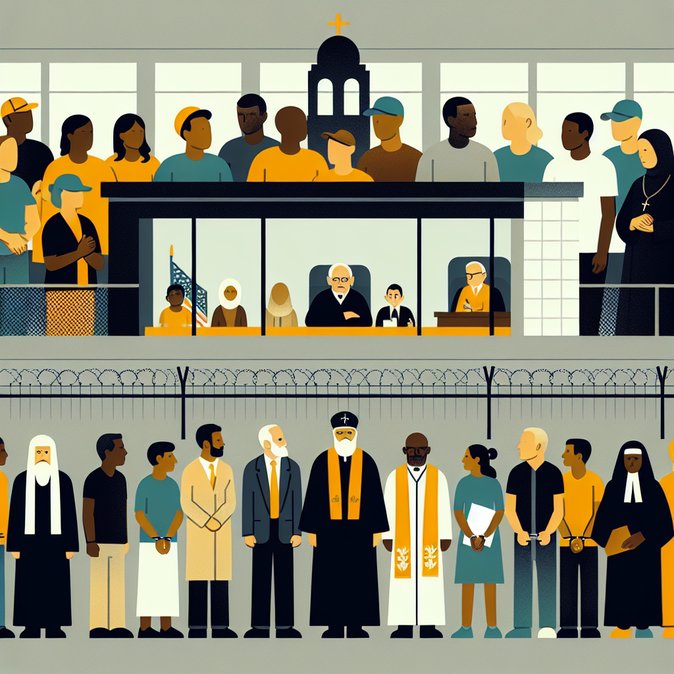
Activists calling for an end to the Trump administration’s intensified immigration enforcement in Chicago gathered outside U.S. Immigration and Customs Enforcement’s Broadview Processing Center on Friday. Illinois State Police arrested 21 protesters—including Reverend Michael Woolf of Evanston’s Lake Street Church—after they blocked employee entrances and refused dispersal orders.
The Broadview site has become a locus of almost weekly demonstrations since September, when ICE ramped up warrantless street operations in the city. Earlier clashes saw authorities deploy tear gas and ‘less-lethal’ rounds, prompting a federal judge in October to restrict certain crowd-control tactics.
![Twenty-One Faith Leaders Arrested at Chicago ICE Protest as Judge Orders Release of Detainees]()
Friday’s protest coincided with another ruling from U.S. District Judge Jeffrey Cummings, who found ICE had violated a 2022 consent decree limiting traffic-stop arrests. Cummings ordered the immediate release of 13 detainees and directed DHS to review another 600 cases for potential bond. Immigrant-rights groups hailed the decision as a check on what they call “dragnet enforcement,” while DHS said the order “places the public at risk.”
For global employers, the developments illustrate the operational volatility surrounding detention and removal in key talent hubs. Mobility managers should advise foreign nationals—particularly those without lawful status—of heightened enforcement in the Chicago area and reaffirm protocols for carrying identity documents. Companies scheduling short-term assignments through Chicago’s O’Hare or Midway airports may also wish to brief travelers on potential protest-related delays.
Longer term, the clash underscores the narrowing space for local cooperation with ICE in so-called sanctuary jurisdictions and raises the odds of further litigation that could affect nationwide enforcement priorities.
The Broadview site has become a locus of almost weekly demonstrations since September, when ICE ramped up warrantless street operations in the city. Earlier clashes saw authorities deploy tear gas and ‘less-lethal’ rounds, prompting a federal judge in October to restrict certain crowd-control tactics.

Friday’s protest coincided with another ruling from U.S. District Judge Jeffrey Cummings, who found ICE had violated a 2022 consent decree limiting traffic-stop arrests. Cummings ordered the immediate release of 13 detainees and directed DHS to review another 600 cases for potential bond. Immigrant-rights groups hailed the decision as a check on what they call “dragnet enforcement,” while DHS said the order “places the public at risk.”
For global employers, the developments illustrate the operational volatility surrounding detention and removal in key talent hubs. Mobility managers should advise foreign nationals—particularly those without lawful status—of heightened enforcement in the Chicago area and reaffirm protocols for carrying identity documents. Companies scheduling short-term assignments through Chicago’s O’Hare or Midway airports may also wish to brief travelers on potential protest-related delays.
Longer term, the clash underscores the narrowing space for local cooperation with ICE in so-called sanctuary jurisdictions and raises the odds of further litigation that could affect nationwide enforcement priorities.


